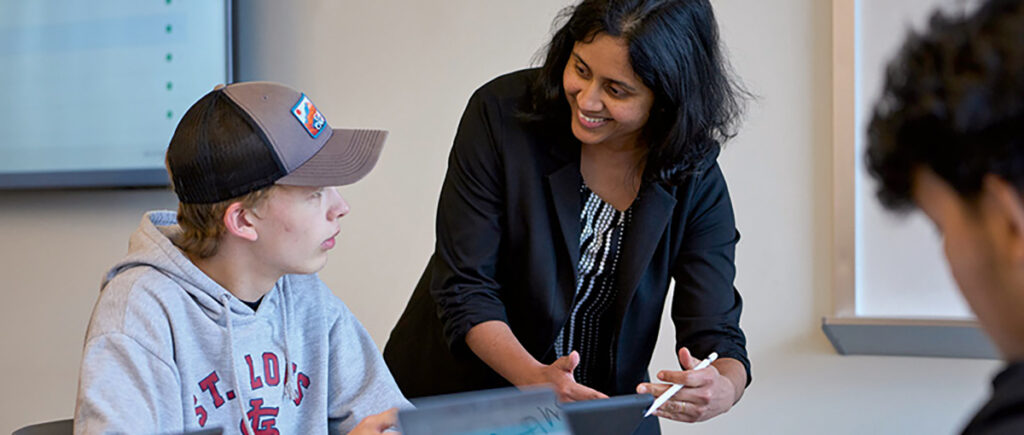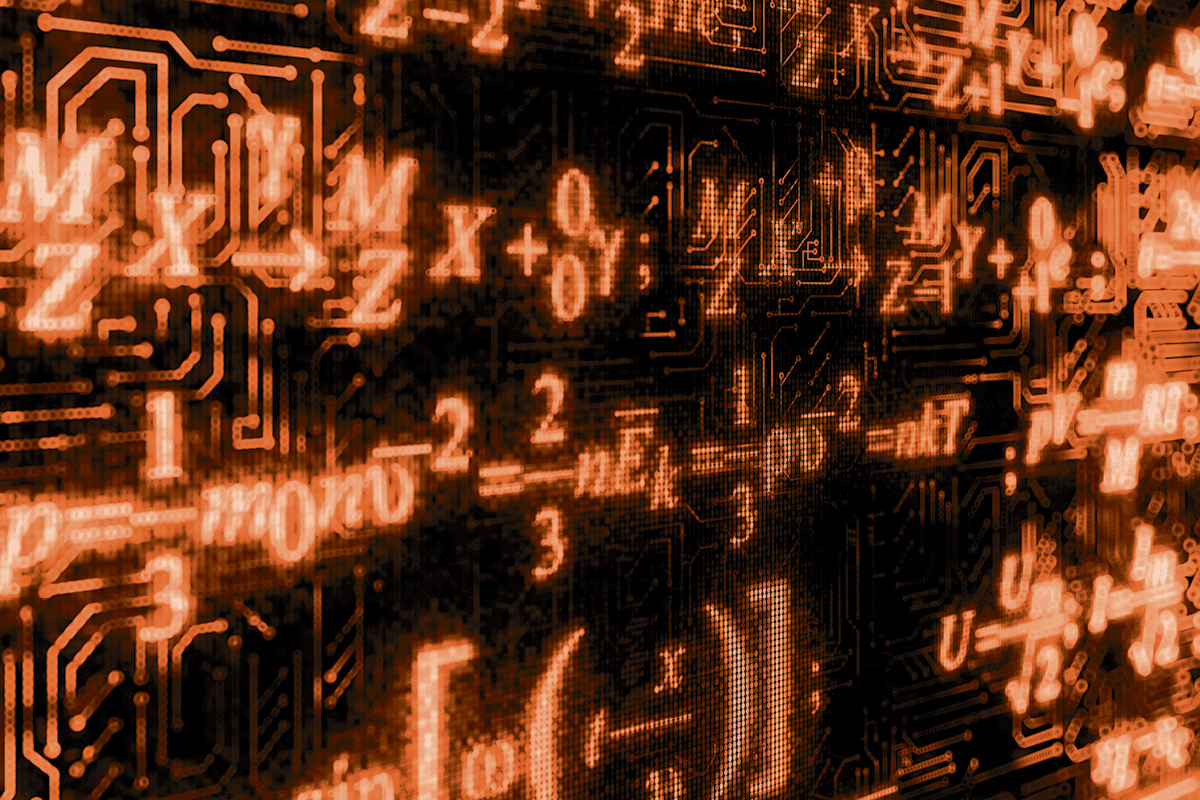Mathematics professors at Maryville are making the most of students’ time by helping them progress with a personalized learning model utilizing artificial intelligence. Math at Your Own Pace, piloted in the spring of 2022, is designed and co-taught by Dushanthi Herath, PhD, and Sharmila Sivalingam, PhD, assistant professors of mathematics. The classroom utilizes tools like the AI system ALEKS, which tracks student success, customizes their learning and allows them to work at their own speed.
Herath and Sivalingam, with guidance from Jennifer Yukna, PhD, vice president for academic affairs, modeled this flexible enrollment experience where students earn credit for either Math 117 or Math 125 based on their individual mastery. Students attend the same class, but each pursues a unique, personalized path to their success shaped by artificial intelligence tools.
Sivalingam explained, “Historically, students either register for Math 117 (College Algebra) or Math 125 (College Algebra and Trigonometry). The prerequisite assessment is the same for both courses, but Math 125 is faster-paced and covers additional trigonometric content. From our experience, students underperforming in Math 125 may perform better in the slower-paced Math 117. On the other hand, students breezing through Math 117 may benefit from the challenge of completing Math 125.”
One tool helping to provide students a personalized in-class experience is ALEKS, an adaptive courseware that uses artificial intelligence to measure and set the mastery level in the student’s learning journey. Using weekly assessments, ALEKS maps coursework mastery and continuously offers each student a selection of only the topics they are individually ready to learn at the current time. This builds student confidence and learning momentum. “None of us learn at the same pace,” said Sivalingam. “So, we started working on a personalized learning model enhanced by artificial intelligence where students can work at their own pace in the same classroom, but on two different courses. The courses are coordinated, meaning that they have continuous progress from one course to the other.”
Herath added: “In a traditional setting, the course is fixed. If you learn it, that’s it. If you don’t learn it, that’s it. It can be a struggle. With ALEKS, students can solve a problem, and if they make a mistake, they can go through the steps carefully and learn how to solve the problem. Also, they can try out another similar problem. It helps them practice and learn to solve a problem at their own pace.” “The students are really focused,” she explained. “I have students telling me this semester that they love this model, and they like coming to this class.”

Claire Burmester, a first-year nursing student, is among those who like the system. She finds ALEKS unique in the way it helps students make their way through problems like complex fractions and negative square roots. “If you miss an answer, it can show you where you took a wrong turn,” she said. “If you get it right, you get the credit and move along. If you need more help, the teacher is there, but if you don’t, you proceed at your own pace.”
“It makes learning easier,” Burmester said. “Sometimes, students are scared to ask a question in front of the class. This is kind of like always having a teacher there to explain what you did wrong.” If a fellow student asks Burmeister whether taking a course enhanced with artificial intelligence is a good idea, her reply is quick and sure: “Definitely.”
Sivalingam and Herath provide training and support for fellow faculty and are collecting data to analyze the impact of the model on student achievement. “We are going beyond just measuring success based on student evaluation comments,” Sivalingam explained. “We are currently comparing semester results with traditional courses to quantify the impact of this artificial intelligence. As a second part of the research, we will compare one year to one-and-a-half years to better understand how this AI model enhances personalized learning for our students.”
If the positive results of utilizing artificial intelligence for personalized learning continue, Herath adds, “We may extend the model to different sections giving students additional opportunities to learn math at their own pace.”
Learn more about our Bachelor’s in Mathmatical Science degree.
